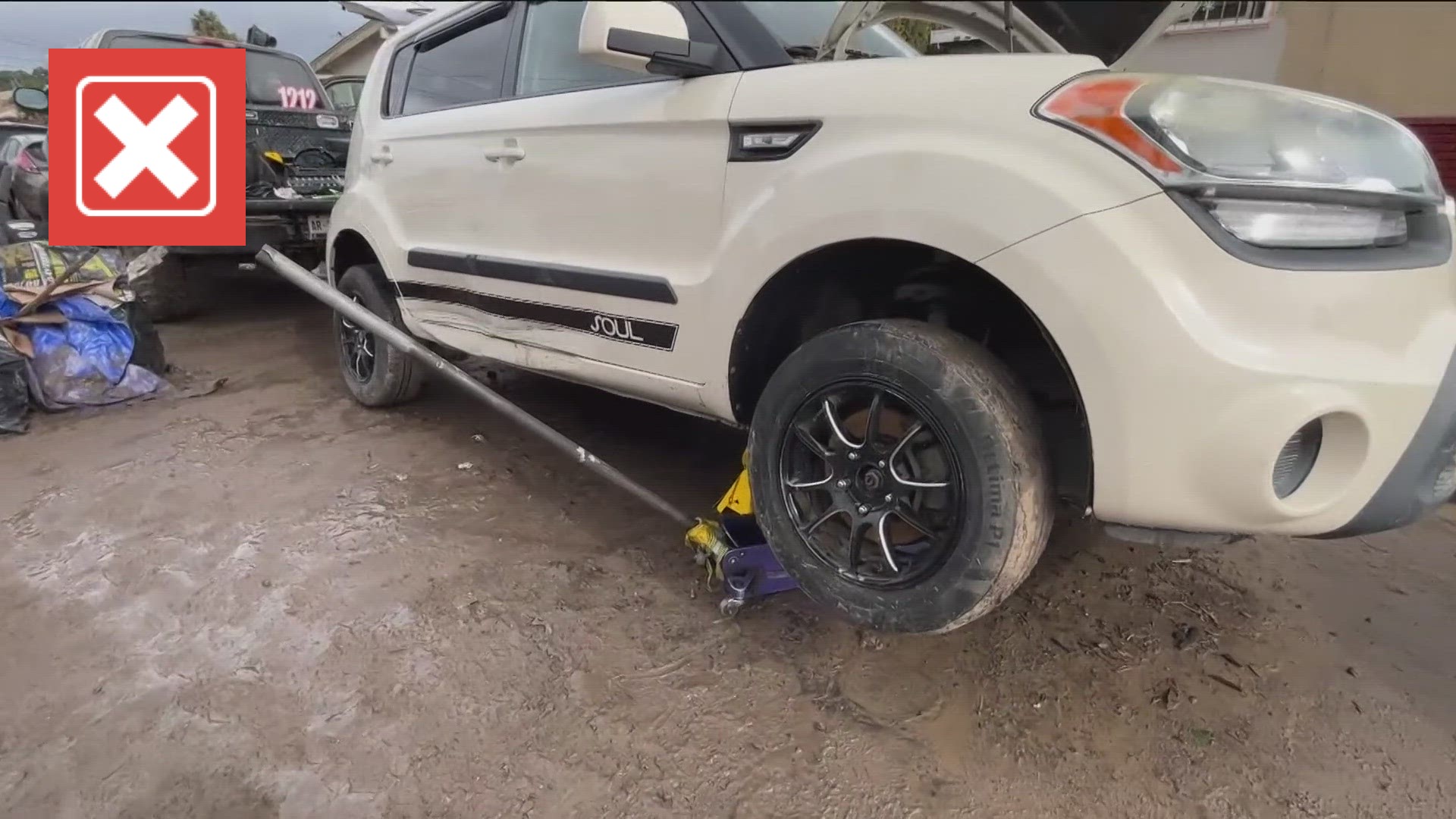SAN DIEGO — With all the flood damage seen in San Diego this week, cars were certainly no exception.
Many vehicles were completely submerged in the flood waters.
As people begin assessing the damage to their vehicles, CBS 8 has received questions as to whether electric vehicles withstand water intrusion better than traditional vehicles.
THE QUESTION
Are electric vehicles more resistant to flood and water damage than gas-powered cars?
THE SOURCES
THE ANSWER
No, electric vehicles are not more resistant to flood and water damage than gas-powered cars.
WHAT WE FOUND
“The batteries don’t like water, none of the connections like water, the computers don’t like water,” said Ray Frey, owner at Ray Frey Auto Center. They’ve been getting a lot of calls about cars with flood damage. He says electric vehicles are not immune to water damage.
“The battery and everything, all the electronics are very low on a Tesla, you know, they’re right there where your feet are, they’re about at that level, so if you’re half a foot up, you’re under water already,” said Frey.
On South 42nd Street in Mountain View, neighbors were cleaning up Wednesday and assessing damage to their homes and vehicles.
“This one floated down to the middle of the street, they had to move it for me, it was where those people are standing,” said Stacey Crawford, who owns three EV’s, one of which was carried four houses down into her neighbor’s yard.
“After the flood, absolutely no power to any of the cars,” said Crawford as she opened the driver door. “With the car door open it should be binging, it’s not doing anything, there’s absolutely no power to the car.”
CBS 8 talked to an expert on the topic.
“You know, water has a way of winning, and if it’s going to find a way, it will,” said Brent Gruber, Executive Director of Electric Vehicle Practice at J.D. Power. He described a perception that EV’s may handle water better than internal combustion engine vehicles, but he told CBS 8 that it’s not necessarily the case.
“Once that water gets in, whether it’s internal combustion engine or electric vehicle, it’s going to damage components regardless, so there’s nothing different in the construction of an electric vehicle that’s going to prevent it from being damaged by water, so that’s kind of a misnomer,” said Gruber.
WATCH RELATED: Electric vehicle tax incentives changing in 2024

